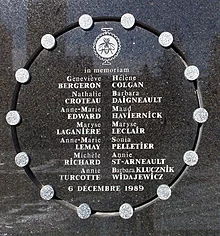Even though I have a punk-rocker scar on my head where no hair grows from being bit by Skippy when I was a year and a half and I though it was my ball but clearly he thought it was his - and he paid dearly for his mistake! But anyway, even though that, and a huge scar my mother always had on her elbow from a badly trained guard dog in Uganda, even though these bad dogs bit us, I am now very grateful for dogs and in particular for Stella pictured above. She has taught me about unconditional love, playing, guilt, and determination.
Ok, there we go. So I'm grateful for D for Dogs.
But what I really wanted to talk about was D for Dreams. How we are molded and folded and ultimately completely remade by our dreams. How our dreams make us what we are and in turn we remake our dreams to fit the new person that arises whenever a dream turns sour or gets different, as dreams do.
My first dream: I wanted to dance forever on the sand, wearing little clothing and having the constant presence of my Ayah who loved me (but of course now I realize that she must have had a whole other life and that her caring for me and loving me was only part of the colonial myth that my parents were living).
My second dream: After getting yanked from Uganda to Calgary where it snowed and people wore a lot of clothes, I had a dream. My dream was to be an astronaut. I studied the planets and the stars, bought a telescope, kept a journal where I marked the positions of the stars, built model rockets, and made a small spaceship in my closet where I would head off to space every so often.
My third dream: Adolescence is a bitch. I realized life was hard and no one really knew the truth. I decided it would be a good idea to change the world. I thought I would like to be a doctor.
Then, things went crazy, life intervened, I travelled, had babies, married, and decided I wanted to accompany women in childbirth.
My Birth Dream:
I studied midwifery and obtained my Certified Professional Midwife qualification. I started studying in 1988, when I was pregnant with my third son. I continued my distance studies for ten years, and then started working as a doula. In 2004 I started the CPM program, and in 2014 just after my mother died, I passed my final exam and became a professional midwife.
Yay!
Except ... except that I had miscalculated and I hadn't really grasped the reality of having a CPM qualification in Canada, where legislation requires midwives to be university trained in order to be licensed in order to work legally.
And now here's the big question: who wants to work illegally as a midwife? If midwifery is actually illegal, you can hone your skills and use your technologies such. as they are (Pinard horn, fetoscope, doppler, palpation, suturing skills, episiotomy if necessary, cord cutting and the like), and then if you really need to, there's always the hospital where you can pretend to be the birthing woman's friend.
But in a situation where midwifery actually is legal but restricted, that makes it much harder for anyone to actually monitor a mother and baby when things start to move outside of the norm. And, despite all sorts of people's convictions, I believe there is a norm that birth usually happens within. There's a certain time span when the woman feels certain things, when baby descends and then emerges. Within that norm, there's a ton of variation, and within that norm there's no need for intervention at all. But when things stretch outside of the normal, that's when the restrictions become dangerous and that's when our hands are tied. Because there are always women, and even more so now that Covid restrictions have made homebirth even harder, there are always women who want to birth their way, in their own home, with whomever they want present. And they call me to ask if I will be their "fly on the wall" in case something happens.
What? How can I fly do anything if the shit's hitting the fan? Granted, shit doesn't tend to unfold at a normal birth.... well of course meconium happens sometimes and mamas poop... but that's not what women are asking me to do.
Let's just use logic here:
- First, let's remember that the original "concept" of the modern doula was the result of a flawed study on maternal-infant bonding. One of the researchers had provided verbal support to the mothers she was observing, and those mothers had quicker and easier labours. So I guess if a mother is planning a "fly on the wall" kind of birth and she wants someone present to encourage and reassure, then she might want to hire a doula
- What shit might hit the fan? What are women afraid of? I've asked women and they tell me they're afraid of hemorrhage, of the cord being around the baby's neck, and of something happening with the placenta. Partners are afraid the mother and baby will die. But if a woman is actually worried about these things, why would she place her trust in someone who is actually not allowed to do anything about it? Or does she think that her perfect birth is worth that other woman's livelihood, marriage, and possibly her home?
- The unassisted births I've heard about either before or afterwards are those where the mother and her partners decided to give birth either on their own or with select family or with a doula present. NOT with a trained by handcuffed birth attendant.












